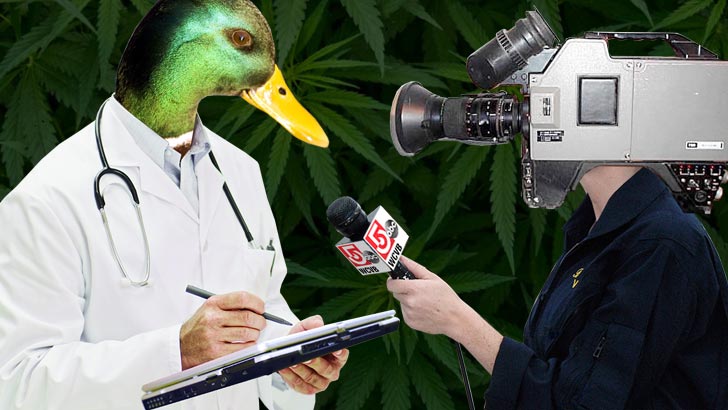Tag: homeopathy
Placebos as Medicine: The Ethics of Homeopathy
Is it ever ethical to provide a placebo treatment? What about when that placebo is homeopathy? Last month I blogged about the frequency of placebo prescribing by physicians. I admitted my personal discomfort, stating I’d refuse to dispense any prescription that would require me to deceive the patient. The discussion continued in the comments, where opinions seemed to range from (I’m paraphrasing) ...
Smallpox and Pseudomedicine
A good case of smallpox may rid the system of more scrofulous, tubercular, syphilitic and other poisons than could otherwise be eliminated in a lifetime. Therefore, smallpox is certainly to be preferred to vaccination. The one means elimination of chronic disease, the other the making of it. Naturopaths do not believe in artificial immunization . . . —Harry Riley Spitler, Basic Naturopathy:...
Of SBM and EBM Redux. Part IV, Continued: More Cochrane and a little Bayes
OK, I admit that I pulled a fast one. I never finished the last post as promised, so here it is. Cochrane Continued In the last post I alluded to the 2006 Cochrane Laetrile review, the conclusion of which was: This systematic review has clearly identified the need for randomised or controlled clinical trials assessing the effectiveness of Laetrile or amygdalin for...

Naturopathy and science
Naturopathy has been a recurrent topic on this blog. The reasons should be obvious. Although homeopathy is the one woo to rule them all in the U.K. and much of Europe, here in the U.S. homeopathy is not nearly as big a deal. Arguably, some flavor of naturopathy is the second most prevalent “alternative medical system” here, after chiropractic of course, and...

The NCCAM Strategic Plan 2011-2015: The Good, The Bad, and The Ugly
The NCCAM has a new strategic plan that involves funding good science on meaningful topics, which is good. But it's still talking about nonsense like reiki, which is bad, and mixing it with real, scientifically proven treatments, which is ugly.

Randi issues a challenge
James Randi has issued a challenge to retailers based on the 10:23 campaign to demonstrate homeopathy is nonsense.
1023 2011
The 1023 campaign is a UK based organization whose purpose is to raise awareness of the actual claims of homeopathy. The name is a reference to Avogadro’s number (6.02214179×10^23), which is the number of atoms or molecules of a substance in one unit called a mole. This is an important basic concept in chemistry, for it means that there are a finite...
Mothering magazine: Peddling dangerous health misinformation to new mothers
Last week, the British Medical Journal (BMJ) published an expose by investigative journalist Brian Deer that enumerated in detail the specifics of how a British gastroenterologist turned hero of the anti-vaccine movement had committed scientific fraud by falsifying key aspects of case reports that he used as the basis of his now infamous 1998 Lancet article suggesting a link between the MMR...
CAM and the Law Part 4: Regulation of Supplements and Homeopathic Remedies
Another major set of legal standards that apply to alternative medicine are the laws and regulations that govern the manufacturing and availability of homeopathic and herbal remedies and dietary supplements. Although there is less ambiguity in these standards than in some of the areas I’ve covered previously, there are certainly loopholes aplenty available to avoid the need for any truly scientific standards...
Of SBM and EBM Redux. Part II: Is it a Good Idea to test Highly Implausible Health Claims?
Review This is the second post in a series* prompted by an essay by statistician Stephen Simon, who argued that Evidence-Based Medicine (EBM) is not lacking in the ways that we at Science-Based Medicine have argued. David Gorski responded here, and Prof. Simon responded to Dr. Gorski here. Between that response and the comments following Dr. Gorski’s post it became clear to...

